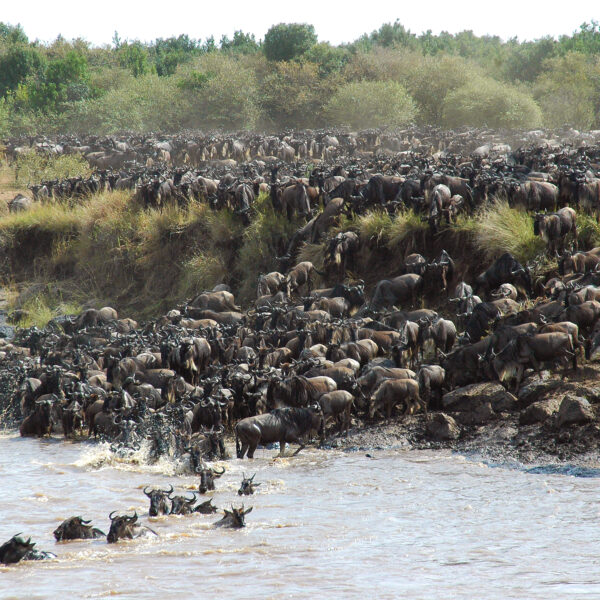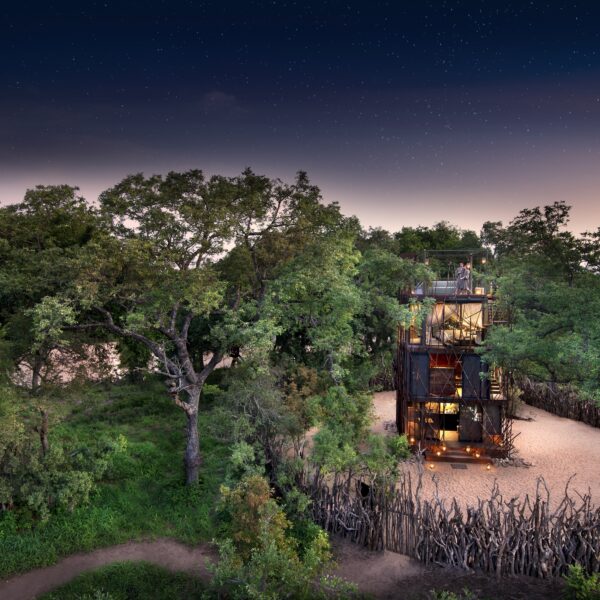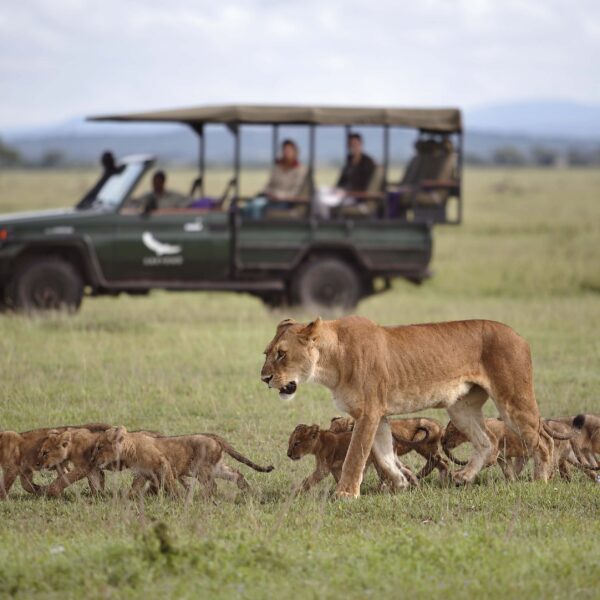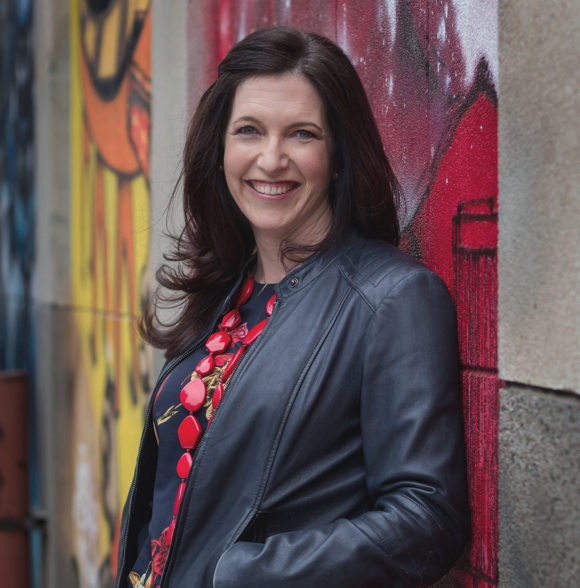Nicole Robinson, Chief Marketing Officer at andBeyond, started with the organization in 1999, just eight years after its creation and has stayed ever since. Her commitment to andBeyond is grounded in its purpose, which is to leave their world a better place through the delivery of extraordinary travel experiences and their care of the land, wildlife and people.
As well as being a highly personalised tour operator, andBeyond owns and manages 29 extraordinary lodges and camps across three continents. Through the lodges, andBeyond positively impacts 75 communities and directly conserves their footprint of 1 million acres. The 2030 vision is to scale impact through partnerships and support the conservation of an associated 40 million acres of key biospheres to double the 2020 impact investment, while continuing to offer discerning travellers a rare and exclusive experience of the world as it should be.
Nicole’s finance background has intersected with her marketing experience to tell the story of andBeyond through quantifying its impact and showing the successes.
What led you to andBeyond and what has been your career path there?
I studied to be a chartered accountant and I did my articles with PwC. At the time andBeyond (then known as CC Africa) was one of their clients. I had heard about their incredible work and really wanted to be part of the team, so I approached the audit partner and requested a spot. As part of the programme, I had the opportunity to visit Phinda Private Game Reserve, which was the very first reserve and lodge for andBeyond. I had grown up in South Africa, but I had never experienced a safari that provided such care, intimacy and knowledge. I was blown away and I came back forever changed. I managed to convince PwC to second me, then I finished my articles, and I never left.
No one year has been the same as another and I have loved using my finance background to show the immense positive impact that andBeyond has made. However, the thing that made me stay is the purpose.
Les Carlisle, Group Conservation Director at andBeyond, who was an intrinsic part of the team for 30 years, used to walk through the office and say: “the Rhinos thank you for coming to work today,” which was a constant reminder of why we do what we do.
Since I started in 1999, my understanding of how business works and the inequalities in the world have changed, and I have changed. I look at the world differently now, through my understanding of andBeyond and through my own personal travel.
In 2002 my husband and I took a long trip to the U.S. and other developed countries. Whilst it was fascinating, we made a conscious decision to stay in South Africa, where our life could have more impact. The trip made me realise that the grass isn’t always greener, just different, and I am incredibly lucky to make a living and feel it has some significance.
What has been the most impactful initiative you have achieved?
A lot of the roles I have had were focussed on reporting, assessing financial performance but it wasn’t until 2017 that we were able create an intersection of stories and data in our first ever impact report, looking at what we had achieved over the last 30 years. The creation of this report was a personal highlight for me.
We wanted to show andBeyond’s journey, where we have come to and where we hope to get to – and to clarify our why. In 2018, because of this work, “leaving our world a better place” became our manifesto. It grew to a concept that we could grab on to and rally a community (guests and team) around. The hope is that travel changes mindsets, that people leave understanding their place in the world – and feel reconnected to it.
How did andBeyond come to understand that a circular economy was the only way forward?
Phinda started as four derelict pieces of agricultural land at a volatile time in the country’s history, but the investors all had a vision that it could be restored to a biodiverse habitat and that wildlife could return and thrive
Today the reserve stands in an impressive 29,866 hectares (73,800 acres) of protected wildlife land in KwaZulu-Natal, South Africa. It is home to Africa’s Big Five (lion, leopard, elephant, buffalo and rhino), as well as 436 bird species and a tapestry of woodland, grassland, wetland and forest, that are interspersed with mountain ranges, rivers, marshes and pans. Phinda also houses 1,000 hectares (2,471 acres) of Africa’s remaining rare dry sand forest.
None of this would have been possible without the support of the local community, which was initially very nervous and about the dangers of bringing wildlife back. The team realised that collaboration was the only way that Phinda could work and that you can’t build a higher fence; you need to build a longer table.
The Africa Foundation was created as part of Phinda; designed to work with communities and ask what they needed from the rewilding project, to understand what their priorities were and what was relevant to them – from new schools, better access to healthcare to cleaner water. Communities saw that returning land to wildlife improved its value, creating jobs and so more and more landowners converted their land use to wildlife.
The community partnership was all born out of necessity but has shaped a methodology that has not changed over 30 years. Maintaining this commitment needs extra investment from the team and shareholders and commercial sustainability. We now build this way of working into every decision, from hiring to building new lodges, but we also need to make sure that this way of working pays for itself so that there is always a healthy tension between what is right and what we can afford.
Everyone is on a journey with this, and you have to start somewhere. A step towards something is better than no step at all. We aren’t perfect but we are moving in the right direction.
Do you think this model can be rolled out more widely?
Yes, but it takes a certain resilience and commitment. We look at profit in a different way. We plot it against impact – for example, low/negative impact but high profit would be an exploitative business, but high profit and high impact would be a transformative business. At the very least we aim to be a positive business that creates shared value for all its stakeholders. However, this commitment is dependent on shareholders and if the market doesn’t value this, then it will be difficult for it to be rolled out more widely.
Transformative returns don’t really exist in a world addicted to fast, quarterly returns – ‘patient capital’ is a good description of what is required as short-term profits are sacrificed for longer term sustainability of profit and impact. If it is just profit then you can get fast returns, but you sacrifice people and planet. You can get longer term profit, that has deeper roots and more return with significant positive impact for all stakeholders, but you have to give it time.
If there is one legacy for you/andBeyond that you would want to see, what would it be?
I hope that andBeyond continues to grow and exist for a long time. It is an organisation that has such a positive impact on the destinations it is in, the teams that work there and on the guests that visit. I hope its grows and supports more special places and their inhabitants. I read that we each have an average of 4,000 weeks on this planet – and I want to keep mine focussed on delivering change. You need to love what you do.
andBeyond.com



